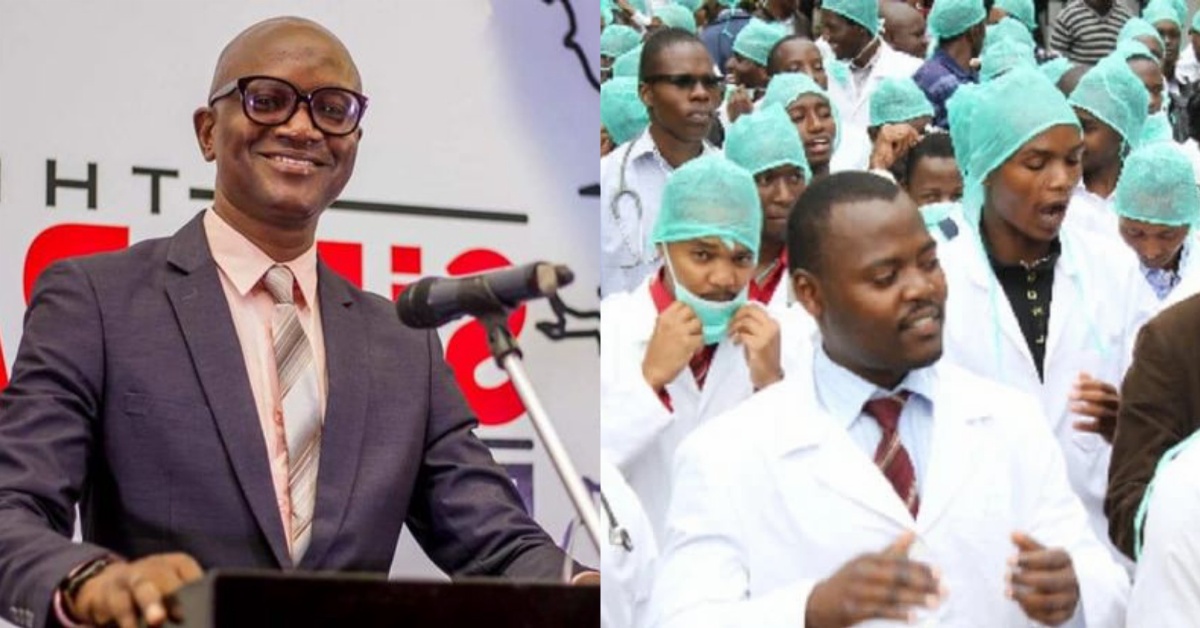After the Government of Sierra Leone failed to heed to their demand made in day 21 strike notice, The Sierra Leone Medical and Dental Association (SLMDA) has begun their strike, prominent BBC reporter Umaru Fofana explains his experience and the impact of day one of the doctors’ strike.
Recalling to their demands in the 21 day strike notice, the doctors demanded for the reinstatement of their COVID-19 allowances as salary increase, and the weekly fuel allocation of 45 Litres.
As their strike starts day one, Sierra Leone British Broadcasting Corporation (BBC) reporter Umaru Fofana paid a visit at the Connaught hospital Freetown to assess the impact of the strike. On his arrival, he noticed there were dozens of patients in the hospital hopeless of their recovery. No doctors to attend to them.
According to Umaru Fofana, he interviewed an old man in an excruciating pain with his catheter hanging. With excruciating pain and with prayers to see a doctor showed up but no available, the old man cried for the Government to intervene and end the strike.

“I had an appointment for a surgery today but I cannot reach the doctor. I am told he is not on duty because of the strike and he is not answering my calls”, the man told Umaru Fofana, as he fought back tears.
According to Umaru Fofana, reaching the PCMH not exceptional as there were pregnant women at the antenatal unit waiting to see any sign of a doctor. It was surprisingly to them that they didn’t know there has been a strike before they got to the hospital for normal medical attention.
The Sierra Leone Government looking at the negative impacts this strike could cause to the citizens, there are rumours that the Vice-president, Dr. Mohamed Juldeh Jalloh will be meeting with the leadership of the doctors and dentist today 2nd August 2022 to see if they can come into terms and agree for general good of all.
On Umaru Fofanah’s report of his experience in day one of the doctors’ indefinitely strike, on his Facebook handle he wrote:
“Today, day one of an indefinite doctors’ strike, I went to Connaught hospital in Freetown to assess the impact.
Dozens of patients sat there, hopeless. No doctors to attend to them.
An old man in excruciating pain with his catheter hanging, pleaded for the Government to intervene and end the strike.
“I had an appointment for a surgery today but I cannot reach the doctor. I am told he is not on duty because of the strike and he is not answering my calls”, he told me, as he fought back tears.
His stoicism would soon cave in. He shed tears, warning: “If this is not resolved now, many people will die”. He probably had himself in mind. He then wiped his face, sobbing.
A middle-aged woman, who sat on the floor groaning from an abdominal pain, said she had been waiting for hours without a doctor and did not know what to do. She had no relative beside her and could barely stand up.
At the PCMH, dozens of pregnant women sat at the antenatal unit, expecting to see a doctor. They did not even know there was a doctors’ strike before they got to the hospital. The sister in charge of the unit, Loretta Macaulay said they had no doctors on duty “because they are all on strike…Normally we would have two or three doctors here but for now we don’t have any. Only the specialists are working and the workload is too much for them”.
A few expatriate doctors working as partners were elsewhere helping out. A woman with an obstructed labour, lost her baby. The midwives fought gallantly to save the mother. She was lucky to have survived.
I hear the country’s Vice President, Dr Juldeh Jalloh is meeting with the leadership of the doctors and dentists on Tuesday morning to try to resolve the matter.
So far the government has approved a pay rise for the doctors and their weekly 45 litres of fuel entitlement.
The sticky points are the backlog of the salary differential from May to August and the method of providing the fuel. The state says by chits. The doctors say they want cash.
Tomorrow’s meeting will be crucial for the many patients across the country who couldn’t see a doctor today due to the industrial action – among them the old man and the middle aged lady I met at Connaught today, in pain and in tears.”











